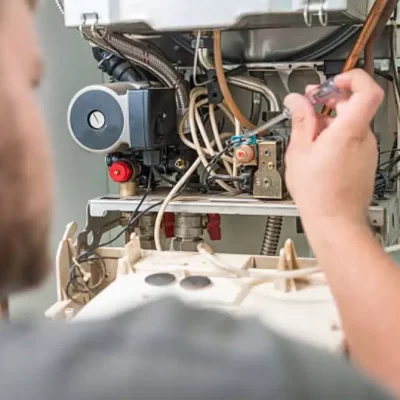Publié le 06 décembre 2022 Mis à jour le 06 décembre 2022
« Les analphabètes du XXIe siècle ne seront pas ceux qui ne sauront ni lire ni écrire, mais ceux qui ne pourront apprendre, désapprendre, réapprendre.«
Edgar Morin
Qu’est-ce qu’une organisation apprenante ?
« Les analphabètes du XXIe siècle ne seront pas ceux qui ne sauront ni lire ni écrire, mais ceux qui ne pourront apprendre, désapprendre, réapprendre.«
Edgar Morin
Une organisation apprenante place l’apprentissage au cœur de ses processus de travail pour mieux s’adapter plus vite aux contextes qui se transforment. Elle observe ses « comportements organisationnels » et installe des boucles de rétroaction.
Le besoin s’est d’abord fait sentir dans les institutions militaires qui cherchent à comprendre comment gagner sur l’adversaire et éprouvent donc la nécessité d’analyser leurs erreurs. À cet égard, les retours d’expérience mis en place au sein des forces armées canadiennes ont été inspirants. Cette envie de progresser et d’apprendre de ses erreurs est aussi identifiable dans les grandes expéditions, en particulier polaires (Lièvre et al 2005), puis les grandes entreprises ont compris la nécessité qu’apprendre soit au centre de leur stratégie, par exemple la compagnie Shell dirigée par Arie de Geus a été précurseur.
Disposer d’un modèle organisationnel adaptable est l’un des grands intérêts notamment pour aider à sortir des limites du taylorisme. L’ambition de devenir une organisation apprenante permet également de mesurer la valeur d’une organisation ou de maintenir le mouvement de réforme dans la fonction publique (Aucoin, 2000). Dans le secteur public l’organisation apprenante permet de définir, en dehors des politiques publiques, les critères de qualité de leur travail, les contraignant à utiliser massivement leur intelligence pour «gérer dans l’ombre ce que l’organisation officielle ne prend pas en charge ».
C’est donc une opportunité de libérer de nouvelles énergies créatrices à tous les niveaux. L’organisation apprenante a aussi pour enjeu de promouvoir d’autres rapports aux savoirs (Oudet 2010). Historiquement l’organisation a été formatrice et a planifié des stages puis elle s’est voulu qualifiante et a distribué des reconnaissances. Aujourd’hui les dirigeants l’espèrent apprenante pour d’adapter, pour émanciper les individus et les collectifs et leur offrir les meilleures raisons de rester et s’épanouir .
Les organisations apprenantes sont à la fois des « idéaux types » (Weber), elles posent une vision descriptive et compréhensive des phénomènes organisationnels à l’œuvre et également des modèles d’action avec une vision prescriptive. Peut-être même qu’une organisation apprenante se transforme en écosystème favorable à l’épanouissement de homo sapiens retiolus (Heutte 2005), travailleur dont le niveau d’information a significativement augmenté, ce qui conduit à des porosités fortes entre l’intérieur et l’extérieur de l’entreprise.
Années 90
Ce qui ressort de l’identification de travaux de recherche sur l’organisation apprenante des années 90 c’est la focalisation d’observations sur les processus qui confèrent aux organisations des avantages concurrentiels, grâce aux meilleurs ajustements et à la régulation des interactions humaines.
La coordination verticale demeure la référence, mais elle est complétée par des dynamiques collectives, communautaires et d’ouverture vers l’externe. Le pouvoir de connexion et de calcul commence à se révéler au service d’une performance organisationnelle et son effet est esquissé par les pratiques de gestion de la connaissance et le recours croissant à des bases de données.
La thématique de l’organisation apprenante intervient dans le débat sur l’évolution des « modèles productifs », avec la « sortie du taylorisme ». À cet égard il est possible de s’appuyer sur la sociologie des configurations, developpée par Norbert Elias qui conçoit l’ensemble social comme irréductible aux individus et en même temps constitué par leurs activités. Les configurations engagées par une organisation apprenante en tant que dynamique favorise une mise en forme et un sursaut continuel d’apprentissage.
Années 2000
La recherche du potentiel de transformation humain, combinée au potentiel de transformation des organisations, caractérise les pratiques valorisées à partir des années 2000, dont une quête d’émancipation individuelle où l’individu prend des initiatives et n’attend plus seulement d’être coordonné à d’autres forces de travail.
Cette combinaison s’exprime par une investigation de pratiques horizontales, laissant des marges d’initiatives plus larges aux individus et aux groupes fonctionnant en réseau, en communauté ou dans une variété de formes collectives. La question des apprentissages informels, de la prise en compte des émotions et du potentiel numérique, laisse entrapercevoir une recherche de nouvelles combinaisons de valeurs alliant intelligence émotionnelle, intelligence collective et intelligence artificielle. Le numérique en réseaux maillés permet une intelligence distribuée et peut redonner du sens et du sentiment d’utilité à chaque collaborateur.
En résumé l’organisation apprenante vise à apprendre plus vite que les concurrents, à s’adapter aux transformations, à utiliser au mieux ses ressources internes, à disposer de comportements organisationnels vertueux (apprentissage organisationnel). Il existe plusieurs façons de progresser dans la démarche.
Il est possible d’agir sur l’organisation du travail pour apprendre. Par exemple en favorisant les échanges ou les temps de retour d’expérience. Les démarche qualité avec des boucles de retour d’expérience d’apprentissage et de progrès, le lean management sont aussi bien repérés. Il y a de nombreuses manières d’entrer dans une démarche d’organisation apprenante comme la Formation en situation de travail, les Mooc, le développement d’équipes apprenantes, la formation de formateurs, la mise en place de réseaux informels transversaux, l’instauration de séances de co-développement professionnel, l’encouragement de communautés d’intérêts.
C’est probablement l’ouvrage de Peter Senge « La 5ème discipline » qui va apporter le plus de pistes pour faire prendre conscience de l’importance d’apprendre à un niveau organistionnel. Pour lui cela passe par la maîtrise de cinq disciplines complémentaires:
Les travaux de Peter Senge seront à la base d’un foyer de réflexion, de recherche et d’action sur l’organisation apprenante représenté par Sol International et Sol France.
Sol International, est issu du MIT à Boston ; elle est la réunion de praticiens d’entreprises, d’associations, d’administrations, de chercheurs, de consultants et d’étudiants, travaillant ensemble à la mise en œuvre des pratiques de l’organisation apprenante. Au sein du Organizational Learning Center (OLC), Sol International visait à stimuler les échanges d’expériences entre grandes firmes engagées dans des processus de changement et d’apprentissage. Sol France est une association à but non lucratif créée en janvier 1999 dans une déclinaison mondiale de la pensée de Peter Senge.
L’essaimage de Sol en France a été réalisé par des prospectivistes produisant de nouveaux concepts comme Alain de Vulpian avec la socio-perception (De Vulpian 2019) qui décrit la capacité à percevoir les tendances dans les formes sociales et à en dégager les signaux faibles.
L’exploration par expédition apprenante a été dans l’histoire de Sol un axe pour faire de l’association une association apprenante. Ainsi, de nombreux voyages ont été organisés en Finlande pour découvrir la team academy (Belet 2012), ou au pays Basque pour comprendre comment la plus grande coopérative du monde « Mondragon » s’était développée en intelligence collective.
Ces voyages inspireront les plus grandes entreprises qui assureront la promotion actives des pratiques. Sol va s’approprier et diffuser auprès de ses membres de multiples approches élément humain , l’appreciative inquiry, les histoires apprenantes, les communautés d’apprentissage et les cercles de dialogues. Un ouvrage de praticiens de Sol France recense plus de 100 méthodes inspirées pour promouvoir et créer l’organisation apprenante. Ce sont plus de 230 concepts qui se déclinent et font échos aux 5 disciplines de Peter Senge
L’association est active dans la production intellectuelle (Arnaud, 2019, Cristol 2021), par exemple dans la traduction d’ouvrages, dont bien sûr le livre phare de Peter Senge «La 5ème discipline» ou «Le dialogue – Cheminer vers l’intelligence collective » de David Bohm. Les cahiers de Sol France sont une édition apériodique qui s’intéresse à relever des pratiques exemplaires pour réussir la transformation du vivant par l’intérieur. Où, dit de façon métaphorique, si vous percez un œuf de l’extérieur l’oisillon meurt, si vous le couvez il éclot. «Et si l’on pondait des organisations ?» pourrait être la question clé. Une chaîne vidéo favorise la diffusion de l’ensemble
Les congrès de sol sont de véritables carrefours de découvertes d’intelligence collective rassemblant des adhérents de dizaine de pays partageant et échangeant des pratiques d’intelligence collective favorisant l’apprendre ensemble.
Le chercheur collectif mis en place pendant le covid a utilisé les 5 disciplines de Peter Senge pour comprendre le fonctionnement des organisations apprenantes. Un film d’enquête sociologique raconte comment un groupe de 32 participants s’unit pour aller au devant de 64 organisations produire 6 livrets de recherche et un test en ligne pour comprendre comment elles apprennent. À l’occasion de la recherche, le test psychométrique « Cap en 5D » est produit.
Sol France est organisé en 4 cercles : organisation, consultants, chercheurs, étudiants, pour mener à bien des initiatives et partager leurs veilles. Ces cercles soutiennent des initiatives par exemple celle de «into the tribes», le voyage autour du monde pour aller à la rencontre d’organisations apprenantes, rencontres des sources formation pédagogique radicale, Inspiration de sujet de recherche par exemple sur les territoires apprenants, le leadership coevolutionnaire.
Sources
Blog Formation entreprise. L’organisation apprenante des pratiques très diverses
https://www.blog-formation-entreprise.fr/organisation-apprenante-pratiques-tres-diverses/
Lièvre, P., & Rix, G. (2005, June). Organisation apprenante: le cas exemplaire des expéditions polaires. In Colloque de Cerisy «Intelligence de la complexité: épistémologie et pragmatique», sous la dir., Jean Louis Le Moigne, Edgar Morin (pp. 23-30).
Aucoin, P. (2000). La fonction publique comme organisation apprenante: maintenir le mouvement de réforme dans la fonction publique. La modernisation de la gouvernance, 155-195.
Felix, C., & Saujat, F. (2015). Le métier d’enseignant: un impensé dans le rôle de l’établissement comme organisation apprenante?.
Heutte, J., de Pablo, E., & Maestre, A. (2005). Statut de la connaissance dans les organisations apprenantes: tentative de description d’un écosystème favorable au développement de l’espèce Homo sapiens retiolus.
Oudet, S. F. (2010). Des organisations pour apprendre. Tentative de contribution à l’idée de «ville apprenante». Specificites, (1), 19-38.
Morin, E. (2005). Cahiers de SoL.
Belet, D. (2012). Team academy. Revue internationale de psychosociologie et de gestion des comportements organisationnels, (46), 267-282.
Moretti, L. (2021). Enseignement des sciences, interdisciplinarité et territoire apprenant: Une recherche-action sur le territoire insulaire corse. Éducation relative à l’environnement. Regards-Recherches-Réflexions, 16(2).
Vulbeau, A. (2011). Spécificités N° 3. L’éducation tout au long de la ville. Champ social Editions.
https://www.decitre.fr/ebooks/specificites-n-3-9782353718672_9782353718672_2.html
de Vulpian, A., & Dupoux-Couturier, I. (2019). Homo sapiens à l’heure de l’intelligence artificielle: la métamorphose humaniste. Editions Eyrolles.
https://www.decitre.fr/ebooks/homo-sapiens-a-l-heure-de-l-intelligence-artificielle-9782212720228_9782212720228_11.html
Arnaud, B., & Cahn, S. (2019). La boîte à outils de l’intelligence collective. Dunod.
https://www.decitre.fr/ebooks/la-boite-a-outils-de-l-intelligence-collective-2e-ed-9782100819201_9782100819201_9.html
Cristol, D., & Joly, C. (2021). Management et intelligence collective, 80 méthodes et exercices: Des pratiques pour apprendre ensemble. ESF Sciences Humaines.
https://www.decitre.fr/ebooks/management-et-intelligence-collective-80-methodes-et-exercices-9782710144090_9782710144090_1.html
Chaîne sol France https://youtube.com/channel/UCKetSlwRJO0_Fx2ezH9hl8A
Le chercheur collectif – Sol france https://4cristol.over-blog.com/2020/10/le-chercheur-collectif-de-sol-france.html
Centreinffo. Sol France présente sa méthode pour aider les organisations à devenir apprenantes
https://www.centre-inffo.fr/innovation-formation/articles/sol-france-presente-sa-methode-pour-aider-les-organisations-a-devenir-apprenantes
Ota62. Les organisations apprenantes par Jacques Chaize président de Sol France https://ota62.site.ac-lille.fr/courses/les-organisations-apprenantes/cours/les-organisations-apprenantes-par-jacques-chaize-president-de-sol-france/
Forma radio Sol France. Éric Mellet https://formaradio.fr/sol-france-lassociation-des-entreprises-apprenantes/
Béatrice Dewandre. Journée élément humain Sol France https://www.beatricedewandre.com/agenda/2022/11/29/journee-element-humain-solfrance
Hbr France comment devenir une organisation apprenante ? https://www.hbrfrance.fr/chroniques-experts/2020/07/30667-comment-devenir-une-organisation-apprenante/
Mooc organisation apprenante https://www.saintrapt.com/mooc-les-organisations-apprenantes/
Hr today il était une fois les organisations apprenantes https://www.hrtoday.ch/fr/article/il-etait-une-fois-les-organisations-apprenantes-
Les échos. L’entreprise apprenante séduit les patrons Https://www.lesechos.fr/1998/05/lentreprise-apprenante-seduit-les-patrons-1047406
Linternome les histoires apprenantes http://www.linternome.fr/2013/09/learning-stories-histoires-apprenantes/
SOL France https://www.solfrance.org/
Senge, P. M. (2006). La cinquième discipline. Levier des organisations apprenantes
https://www.decitre.fr/ebooks/la-cinquieme-discipline-9782212312904_9782212312904_11.html
David Bohm – Le dialogue – Cheminer vers l’intelligence collective
https://www.decitre.fr/livres/le-dialogue-9782416000195.html
Auteur Denis Cristol Contacter l’auteur
Le fil RSS de Thot Cursus via Feed Burner.
Les tweets de @Thot
Accédez à des services exclusifs gratuitement
Inscrivez-vous et recevez des infolettres sur :
De plus, indexez vos ressources préférées dans vos propres dossiers et retrouvez votre historique de consultation.
Vous pourriez aussi aimer:
On attend toujours les Ressources Africaines Libres !
L’ère de la mondialisation avance à grands pas et produit des ressources éducatives utilisables dans le monde entier. L’Afrique, encore à la traîne, dispose pourtant d’atouts enviables qui peuvent lui permettre de se positionner en bonne place et prendre ainsi part à révolution culturelle mondiale. Mais il n’y aura pas de Ressources Africaines Libres sans effort.
REL et CLOM quels rapports ?
La combinaison des ressources éducatives libres (REL) et des formations ouvertes en ligne permettent l’éclosion des CLOMs. Afin de pérenniser ce type de cours, il faudrait des modèles d’environnements propices à la réutilisation et l’agrégation des REL dans les CLOMs.
Formation en ligne : films ennuyeux ou parcours stimulant ?
Qu’achetez-vous, lorsque vous commandez la réalisation d’une formation en ligne ? Beaucoup de médias… et un peu d’ingénierie pédagogique. Sans cet ingrédient indispensable, votre formation risque fort d’ennuyer les participants et de ne pas atteindre son but.
Autoformation et numérique
La liberté d’apprendre s’infiltre partout sans que les institutions ne perçoivent qu’un seuil de liberté et d’autonomie est en train d’être franchi et bouleverse l’équilibre des systèmes sociaux.
De « buyer personas » à « student personas », les définir pour les activités pédagogiques
Il est parfois délicat de reprendre des concepts de marketing étant donné que l’objectif de l’enseignement est fondamentalement différent. Toutefois, quand le marketing est centré sur le client comme nos enseignements sont centrés sur l’élève, cela peut avoir tout son sens.
Superprof : la plateforme pour trouver les meilleurs professeurs particuliers en France (mais aussi en Belgique et en Suisse)
Effectuez une demande d’extrait d’acte de naissance en ligne !
Recevez nos nouvelles par courriel
Chaque jour, restez informé sur l’apprentissage numérique sous toutes ses formes. Des idées et des ressources intéressantes. Profitez-en, c’est gratuit !
Dédié à la promotion de l’apprentissage sous toutes ses formes, Thot Cursus est en ligne depuis 1996. Nous traitons de la formation et de l’utilisation des outils et ressources numériques pour l’éducation et la culture, dans tous les domaines de l’activité humaine.
© 2022 Thot Cursus. Tous droits réservés.
Politiques de confidentialité
Inscrivez-vous et recevez des infolettres sur :
De plus, indexez vos ressources préférées dans vos propres dossiers et retrouvez votre historique de consultation.








